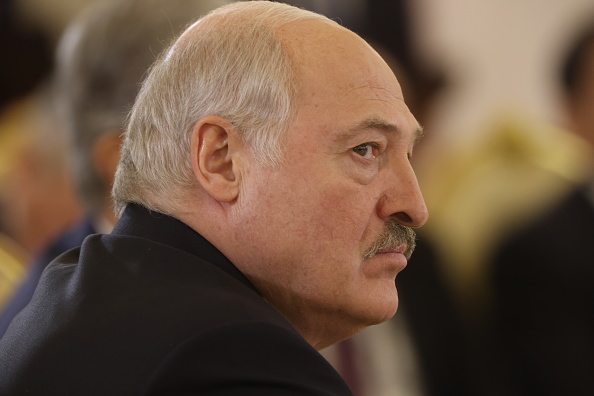Less than a quarter of the amount of Ukrainian grain that Polish farmers were promised would be exported out of their country by the start of next month, from a multi-million tonne stockpile, have actually left Poland.
In April, in a bid to calm Polish farmers’ protests against imports of Ukrainian grain, Poland’s agriculture minister, Robert Telus, had pledged that by July half of the 8 million tonnes stored would be moved out of Poland to make way for this year’s domestic harvest.
The figure of 8 million tonnes, which the minister admitted is held in Polish silos, is twice the amount that appeared in statistical data released by the European Commission.
Telus in April said if the 4 million tonnes target was not reached, he would resign from government. With the July deadline fast approaching, Polish daily newspaper Rzeczpospolita on Monday reported the fact that, so far, only 800,000 tonnes have actually left Poland.
The minister also promised that a list of companies that imported Ukrainian grain would be made public. The list has not been published as yet and the customs and tax authorities say they have no legal right to make such information public.
Ukraine used to export the majority of its grain through its Black Sea ports. However, since the Russian invasion, only three Ukrainian ports are operating, kept open only by a shaky UN deal.
Ukrainian grain, which had poured into Poland, was to intended to be exported to the Middle East and Africa. However, in reality, the grain was often bought by domestic wholesalers and thus remained in Poland.
The situation was exacerbated by the fact that the EC is not prepared to finance the transfer of surplus grain from Polish silos to Africa because doing so would not be profitable. It based its viewpoint on its calculations that it said showed the transfer of 200,000 tonnes of wheat, under the World Food Programme, would cost around €140 million.
Farmers’ representatives claim that despite a ban on Ukrainian grain imports announced by the Polish government on 21 April and formalised by the EC in May, a further 24,000 tonnes of Ukrainian grain have arrived in Poland.
They also claim Ukrainian exporters are exploiting a loophole regarding grain destined for cleaning mills with two to three trains arriving from Ukraine carrying up to nine thousand tonnes daily. The Polish government, however, disputes this, saying only grain that was contracted before mid-April has been allowed in, and it estimates that only 16,000 tonnes have arrived since then.
The logistical problems related to exporting grain are considerable. One cargo ship can carry up to 50,000 tonnes of grain. In order for that grain to be transferred for transport, around 2,000 lorries or 17 trains are required. In addition, European ports are not prepared for handling such unplanned cargo.
The Polish government claims that it has taken necessary action to increase the capacity of its own ports to handle grain exports, and compensation payments have been increased for affected farmers, alongside making low-interest loans available.
Meanwhile, the European Union has just struck a deal with five Eastern European nations affected by the influx of Ukrainian grain.
Announced last night, the deal will see a continuation of the status quo until September 15th.
Representatives from Poland, Romania, Slovakia, Hungary and Bulgaria, came to Brussels for talks with Commission representatives over the weekend. The temporary deal they struck on banning certain Ukrainian grains and agricultural imports was set to expire on Monday, June 5th.
The extension of the ban was more or less confirmed before the announcement. In a retweet from the Poland’s Ministry of Agriculture, Polish MP, Robert Telus, said that his ministry had received a draft proposal from the EC extending the deadline of the import ban until September 15.
Otrzymaliśmy z KE projekt nowego rozporządzenia ws zakazu importu 4 produktów do krajów 5-tki. Termin obowiązywania zapisany w projekcie to 15 września br.
Jest to projekt ale mam nadzieję że wejdzie w życie od jutra ;))— Robert Telus (@RobertTelus) June 5, 2023
As press questions during Monday’s midday briefing illustrated, the EU is being forced to tread a fine line between protecting the interests of its Member States’ citizens, and demonstrating solidarity with Ukraine.
The result is that the five Eastern nations can now effectively ban the import of four Ukrainian products, namely wheat, rapeseed, maize, and sunflower seeds. Simultaneously the EU is trying to enable the export of the same Ukrainian products if they are to be sold in any other EU country besides those five Eastern states.
In addition, at the same time all import tariffs on Ukrainian products entering the EU have been dropped. The suspension of all tariffs on Ukrainian has also been extended into September.





